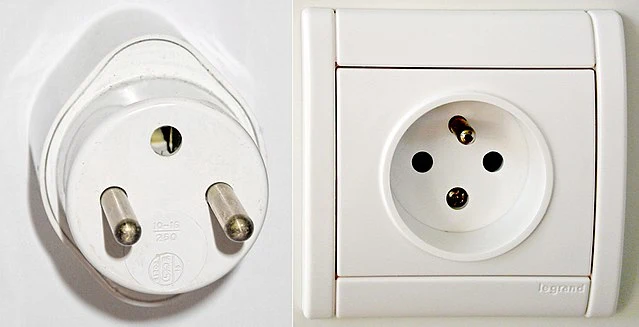The hammam, or public bath, is an important component of an Islamic town.
It is a social hub, especially for women, and hammams are usually divided into two bathhouses, one for men and one for women. If not, they will have separate entrances for men and women, or they will open at different hours or on different days for men and women.
When you enter the hammam, you'll find a disrobing room, followed by the 'cold' chamber and then the 'warm' area. The massage and cleansing take place in the 'warm' room, while the steam room is the final stop.
How to recognize a hammam
Every town in Morocco has at least one hammam but finding one can be challenging if you don't know Arabic. Locals will gladly assist you in finding one, and you will be welcomed in most of them. There are a few exceptions (typical hammams near the mosque) where foreign guests are not permitted.
A hammam can be identified in a variety of ways, including:
- A guy or woman stenciled on a building's outside wall.
- Passers-by carrying shower supplies, towels, and floor mats
- A smokey odor – hammams use wood fires to heat the water.
- A bakery - If there is a bakery nearby, there is a good chance that there is also a hammam. This is due to the fact that hammams sometimes share heating facilities with communal bakeries.
What to Put On
People in Moroccan hammams usually keep their underwear on until the last rinse, when they remove it. Bring a pair of dark-colored pants to wear and another pair to change into. Wearing thongs and your bra will make you appear incredibly self-conscious. Make sure you have something to cover your hair with before you leave, because if you don't, someone else will do it for you. This is because Moroccans think that having damp hair outside, even in the heat of summer, is the fastest way to catch a cold.
What should I bring?
Bring your shower essentials, such as shampoo, conditioner, and soap. Bring a towel, a plastic mat or small stall (to sit on), and a waterproof bag with flip-flops. Most hammams sell toiletries, but if they don't, a trip to the souk is recommended beforehand. Ask for 'black soap,' and if you're going to the hammam for a scrub (a must! ), get a kiis (pronounced keys), which is a coarse glove. You can also get henna and ghassoul at the souk.
What can you expect?
If you're going on a Morocco adventure tour and visiting an actual hammam rather than a 5* hotel's version, don't expect it to be luxury. There is a changing space near the hammam's entrance where you can hang your towels and clothes. The hammam is divided into multiple rooms, each of which is centered on a big cistern with running water. The water in the fountains grows hotter as you approach closer to the wood fire.
To bathe, everyone sits up against the wall on the floor (or on the mat or stall). Buckets are provided, but you must trek back and forth between the hot and cold fountains on your own. Fill the buckets with water and mix them together to achieve the ideal temperature for your location.
You should also expect a head-to-toe scrub, which is a wonderful yet harsh massage. The hammam attendant strokes your skin with the glove until it peels off several layers. You practically emerge from the hammam with a fresh coat of skin!
If no one is available to massage you in the hammam, a fellow bather may volunteer. Don't be skeptical; they're just trying to help. However, it's usually a case of me scrubbing your back while you scrubbing mine.
What to stay away from
- Before you sit down in the hammam, have a look at how the water is flowing. You don't want to sit down in a stream of dead skin, thus the hammam floors are slanted for drainage.
- If you use more than two buckets for water, you'll be labeled greedy!
- When rinsing with cold water at the end, be cautious not to spray it on anyone else or they will be less than impressed!
- Don't stare!
After your hammam visit
Locals are likely to say 'BisaHa,' which means 'to your health,' after visiting the hammam. If you want to impress them, respond with 'Allah yaatik saHA,' an Arabic phrase that loosely translates to 'may God bless yours too.'

%20(93).jpg)



.jpg)